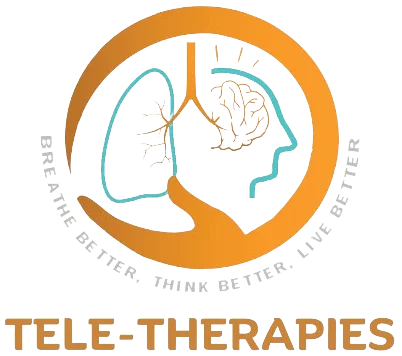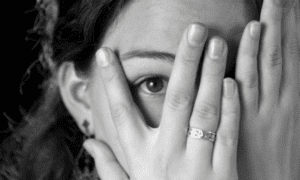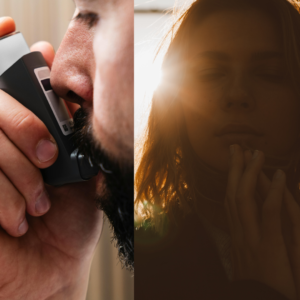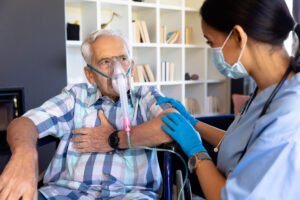Are you having fear to express your opinions?
30, May 2022 Ms. Devi Sundar, Specialist in pulmonary rehabilitation and Mental Health
When people live with opinion phobia, they are constantly worried and anxious about hearing other people’s opinions about them. Many people realize that their phobia is irrational and unfounded, but they cannot overcome it. This leads them to limit themselves greatly. People of all ages can be afraid of receiving opinions from others: not only adults, but even young children can suffer from this fear.
Allodoxaphobia- Fear of opinions:
Allodoxaphobia is considered to be derivatives of doxophobia, but have contradictory meanings. While Doxophobia refers to the phobia of expressing opinions, Allodoxaphobia refers to the phobia of hearing others’ opinions. Term Allodoxaphobia is derived from the Greek words allo, which means different, dox, which means opinion, and phobia, which means fear.As a result, people tend to avoid answering questions or participating in any activities that could potentially cause judgment from others.
Allodoxaphobia is an anxiety disorder spectrum. Social phobias that are uncommon and rare include allodoxaphobia. The sufferer of this phobia is greatly isolated and it can especially harm one’s career and relationships with self and others.
Causes of Allodoxaphobia
There are many people who fear they will not be able to speak their minds, while a small group simply does not want to listen to the opinions of others. Opinion phobia is usually caused by negative or traumatic experiences in the past, the same as other social phobias. Growing children are often triggered by caregivers, teachers, or parents. A child might be suppressed if they are constantly given words of caution or criticism. In addition, traumatized or abused children are more likely to develop Allodoxaphobia.
The most likely ones to suffer from Allodoxaphobia are people who have an aversion to criticism and reprisals. It is possible that their amygdala, power house of emotions (part of the brain) has been activated by criticism in school or at work. Whenever a similar stressful situation arises, the mind triggers the same reaction creating anxiety, a natural protective mechanism wired inside every human brain. As a result, an individual, then tries not to hear opinions about them, in order to prevent the anxiety response fight, flight or freeze response.
Symptoms
Those suffering from allodoxaphobia experience physical and emotional symptoms similar to anxiety being in a flight fight or freeze response, trying to avoid any situation to express opinion. Symptoms may include:
- Sweaty palms
- Increased breathing and heartbeat
- Feeling nauseated or sick
- Feeling angry whenever a bad or good opinion is expressed
- Lack of self-esteem,
- Feeling insecurity
Individuals suffering from this condition are simply afraid of feedback. As a result, such individuals are likely to withdraw socially, and might even be depressed in some cases. As a result, they may miss out on many opportunities and promotions in their lives.
Overcoming and treating the fear of opinions
A therapist can help an individual with Allodoxaphobia control their response to triggering factors once the underlying cause has been identified. Typical therapies used for this include group therapy, psychotherapy, systematic desensitization, psychotherapy counseling hypnotherapy, etc.
Psychiatric Medications for Allodoxaphobia
Anti-anxiety meds
Preventing panic attacks is very easy with these types of medications. People with phobias and panic attacks often have anxiety disorders, making these drugs extremely useful for those suffering from severe allodoxaphobia. Valium, Xanax, and Klonopin are some common anti-anxiety medications.
Antidepressants
People suffering from anxiety disorders, such as allodoxaphobia, can also benefit from these types of medications, not just those with depression. Antidepressants such as Zoloft, Paxil, and Lexapro are among the most common. Allodoxaphobia may be relieved by these drugs.
Cognitive Behavioral Therapy (CBT)
Psychosocial interventions such as CBT aim to improve a person’s mental health. As a treatment modality, it is often used to treat people that suffer from conditions such as generalized anxiety disorder, phobias and obsessions. There is also the possibility that someone with allodoxaphobia could benefit from CBT too since it can help them gain a greater understanding of how they behave when it comes to their irrational fears as well as help them set new and healthy goals and aims.
Mindfulness-Based Stress Reduction (MBSR)
M.B.S.R. is an 8-week evidence-based mindfulness program that provides secular, intensive mindfulness instruction in order to help individuals who suffer from anxiety, stress, depression, and other kinds of mental discomfort. As mindfulness meditation has been shown to be very beneficial to people who suffer from anxiety, MBSR may be able to provide significant help to someone suffering from allodoxaphobia.
Meditation
There are many different types of meditation that are beneficial for people who suffer from allodoxaphobia. It has been shown that mindfulness meditation helps people become more equanimous by helping them gain sense of inner peace. The application of mindfulness meditation can be done in many ways, and there are many different meditation apps that will make things easier.
The best way that anyone can implement mindfulness meditation to relieve their symptoms of allodoxaphobia is by developing the ability to pay close attention to the way that the muscles in their abdominals and chest contract and relax with every inhalation and exhalation. Then, you can spend some time concentrating on how it feels as your chest expands with every inhalation and how it sinks into your lower abdomen with every exhalation.
Exposure Therapy
The treatment of anxiety disorders such as allodoxaphobia with exposure therapy is very common. Using this method helps de-sensitize the patient to their particular fears. Regardless of the case, it is vital that the therapist implementing it with the patient is very skilled at doing so. It is possible that, for example, slightly exposing someone with allodoxaphobia to their fear would not be very effective since it may take a higher level of exposure to really trigger any change in the patient.
Allodoxaphobia Managements Tips:
The following tips will help you manage your Allodoxaphobia
Exercise
Those suffering from anxiety disorders, such as allodoxaphobia, can benefit greatly from exercise. Aerobic exercises, in particular, can significantly reduce stress levels. However, I am not suggesting that weight-resistance training would not be a good option for someone experiencing anxiety; however, it has been proven that aerobic exercise is a better option when it comes to releasing those happy hormones in the brain, such as endorphins.
In order to help relieve the symptoms of allodoxaphobia, there are many different aerobic activities that can be performed, such as swimming, biking, skiing, walking, and jogging. It is also possible to obtain the numerous benefits of exercise by participating in various sports like tennis, soccer, basketball, racquetball, and many more. Through consistent exercise, allodoxaphobia sufferers may be able to alleviate some of the pain associated with it.
Practicing Yoga for Allodoxaphobia
Allodoxaphobia sufferers can greatly benefit from a variety of yoga poses. Yoga can induce a meditative state of mind in some people who practice it regularly. This is similar to meditating while moving. Allodoxaphobia sufferers may benefit from yoga because their attention will be redirected to something more beneficial by engaging in it.
Many different types of yoga are beneficial to people with allodoxaphobia, including hatha yoga and hot yoga. All of the varieties of yoga, regardless of their differences, can ease some of the anxiety and stress associated with allodoxaphobia.
Reducing Caffeine for Allodoxaphobia
Caffeine consumption can make you more anxious if you consume large amounts through the day. If we examine caffeine’s physiological effects closely, we can see why this makes sense. A high dose of caffeine will cause us to become more tense and our hearts to beat faster. In essence, our body will start to go into a “fight or flight” mode. Individuals with allodoxaphobia often experience panic attacks when they are in this frame of mind.
Thus, having little to no caffeine during the day can help reduce anxiety on a day-to-day basis. This will not alleviate all of your anxiety, but it will nevertheless help you reduce any unnecessary suffering that you would otherwise have experienced if you consumed excessive amounts of caffeine.
Dialectical Behavior Therapy (DBT) for Allodoxaphobia
People who are struggling with emotion regulation benefit greatly from DBT. People suffering from borderline personality disorder often use it to treat their disorder. Nevertheless, anxiety disorders like allodoxaphobia can also benefit from it. A DBT group will teach you a wide range of coping skills. Groups of this type usually last about 6 months and can include anywhere from two to several members depending on the number of people who join.
For people with allodoxaphobia, half-smiling is an effective DBT skill. Half-smiling is a technique that involves thinking about what you fear or upsets you while raising your mouth corners and gently smiling, hence the term. However, it is not just enough to half-smile as you think of your fear, you need to refrain from engaging in the painful feelings your fear triggers.
To know more or get support for allodoxaphobia, please reach out to us. Lung rehab voyage & mind Vibes is more happy to support the journey of self renewal to be defined by your positive values rather by others opinion…
References:






